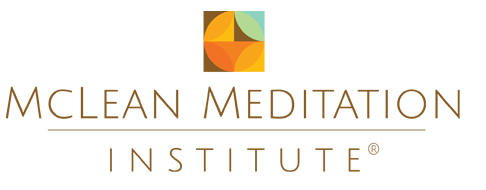Why are We In Lockdown? She asked, Rhetorically.
Yesterday, before we meditated together during an “Alone Together” guided meditation session, a group of 50 or so meditators was engaged in a discussion during which I asked the question, “Why are we in lockdown?” in response to a woman who had shared that there was another round of restrictions in the UK .
After the short discussion, I guided a heart-centered meditation, and 20 minutes later, we opened our eyes.
It was a potent meditation for sure and, yes, my heart opened. The other meditators reported that theirs had, too. As we discussed the effects of the meditation, a participant unexpectedly launched into an explanation of the virus, the CDCs recommendations, and the U.S. Government’s response to it.
I truly didn’t want to spend our time together talking about COVID. And my body didn’t lie. It had immediately tensed up at the COVID discussion, and the contrast of the sudden contracted physical experience was remarkable compared to the expansion we had just felt due to the meditation.
As he very carefully went over the reasons for the lockdown, I stopped him. If I was feeling so contracted, many others must be feeling it, too. I let him know that when I had asked the question earlier, it was rhetorical.
It’s often suggested that meditators ask themselves a few questions as they start meditation. This is a practice called Self-Inquiry. The questions posed in meditation are not the ones you might query a search engine, but I imagine you could. Instead, they are existential questions, such as Who am I? or Why am I here?
So, it could be that the lockdown question could be asked in this way: Am I truly in lockdown? Is my mind in lockdown? What else about my life is in lockdown?
Self-inquiry is a “questioning meditation”— a practice where one asks a question of themselves, then lets the question go. The key to this practice is not to dwell on a question or force an answer in meditation. Sometimes you might see, feel or hear an immediate answer to the question while in meditation, but most often it doesn’t. Instead, answers to these questions often show up in our daily, active life in their own time.
The goal of these meditations and exercises is not to have mystical experiences, but simply to do the practice. Of course, you may have had thoughts, emotions, physical sensations, or felt restless, excited, or bored. By now you know these are normal experiences in any meditation.
There was a wise man from south India, Ramana Maharshi, whose followers would ask him all sorts of spiritual questions. He often responded to questions with another question: From where did that thought arise? or Who is thinking the thought? He also taught that the way to quiet the mind and to experience your own true nature is to ask the question, Who am I?
There are many other questions you can ask, which can include but are not limited to:
· What is my heart’s desire? What do I long for?
· How can I best love myself/my family/my partner?
· What is my passion?
· How can I best use my talents?
· How can I serve my community/family/the world?
· What is the best choice for me in this situation?
· Who am I being at home?
· Who am I being in the workplace?
· Who am I as a leader?
· What am I grateful for?
· What are my self-limiting beliefs? Choose one and ask, Is it true? Can I absolutely know it’s true? How do I live when I believe this thought? Who would I be if I couldn’t think this thought?
· Who is the one who is paying attention?
· What is my purpose?
Just before a formal meditation practice, or just after a practice, you can give self-inquiry a try.
The most important part of self-inquiry is to ask the question, not answer it.
Don’t make up an answer. Instead, remain mindful with a beginner’s mind. Here’s how:
Let your breath be soft and natural. Keep your eyes closed or gazing downward toward the floor.
Silently ask yourself the question: Who Am I? Ask yourself a few times and then return to the stillness (Pause for 30-45 seconds)
(Don’t answer the question with your intellect. You might internally hear an answer right away, or you might not hear anything at all. You might feel something. Or see something in your mind’s eye. Whatever the case may be, let go of expectations and be kind to yourself.)
Next, let go of the question and any answers you might have heard. And now, ask yourself: What is my heart’s desire? a few times, then return to the stillness. (Pause for 30-45 seconds)
Now, ask yourself How can I best love myself? (Pause for 30-45 seconds)
After the inquiry is over, let go of the questions and any answers you might have felt, seen, or heard, and bring your attention to the sensations of your natural breathing. You can stay in meditation for a while longer or simply sit in the stillness for a few minutes before gently ending your meditation.
When you come out of the meditation, you are likely clearer, more aware, sensitive, mindful, and, your attention is more fully established in the present moment. This is essential as it’s often when you are not meditating that you can tune in to the subtleties and you will soon see/feel/hear or know the answer. This does not occur in a set time frame. Though it will occur. The answer ALWAYS meets the question.
But you have to be mindful and present so you can be alert as the signs and synchronicities point the way to the answer to your question.





